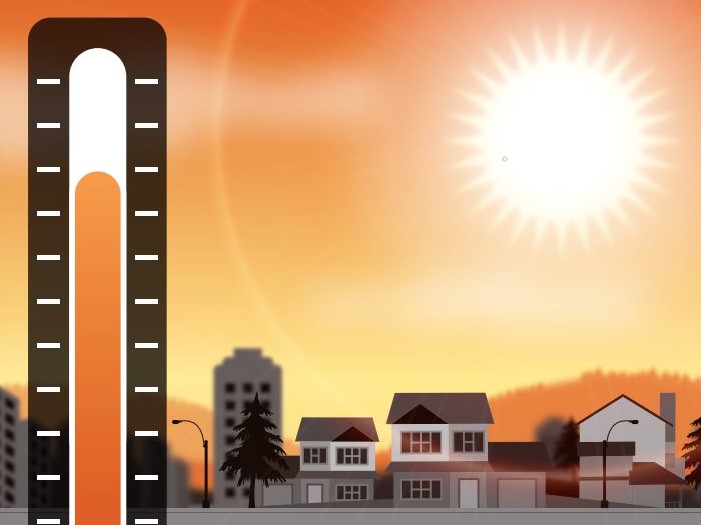With toasty temperatures in the weekend forecast, Interior Health says residents should prepare for the sudden heat spike.

For the past two months, temperatures in the Okanagan have struggled to reach 20 C. But this weekend, Environment Canada is projecting the mercury to hit the low to mid-30s.
In fact, for the past three days, the national weather agency has been issuing a special weather statement saying B.C.’s Interior “will experience its first stretch of warmer-than-average temperatures beginning this weekend.”
The forecast for the Southern Interior will see the mercury climb into the upper 20s on Saturday, then rise into the 30s — temperatures typically seen in the Okanagan. The overnight lows will fall into the mid-teens.
“This is not a heat warning or an extreme heat emergency, but we will experience the first high temperatures of the summer,” said Interior Health.
“The warmer weather will also cause rapid snow melt, leading to high rivers and streams throughout the province so please keep water safety in mind this weekend.
“The first high temperatures of the season can lead to some people overheating because they are not yet acclimatized to warmer weather.”

The health agency says there are some simple steps that residents can take to ensure an easy transition to summer temperatures:
- If you do not have air conditioning at home, find an air-conditioned spot where you can cool off on hot days.
- Consider spending time in places like movie theatres, libraries, community centres, or shopping malls.
- Check that you have a working fan.
- If you have an air conditioner, make sure it works.
- Shut windows and close curtains or blinds during the heat of the day.
- Open doors and windows when it’s cooler outside to move cooler air indoors.

Along with monitoring yourself and family members, Interior Health says residents should also consider neighbours and friends who are at higher risk during warmer weather.
Interior Health says the most susceptible individuals include:
- Older adults, especially those over 60.
- People who are pregnant.
- Infants and young children.
- People who live alone.
- People with pre-existing health conditions such as diabetes, heart disease or respiratory disease.
- People with mental illnesses such as schizophrenia, depression, or anxiety.
- People with substance-use disorders.
- People with limited mobility.
- People who are marginally housed.
- People who work in hot environments.

Also, though this weekend’s forecast won’t be anywhere near as hot as last year’s heat dome, Interior Health says overheating can still occur.
Overheating can lead to heat exhaustion and heat stroke.
Signs of overheating include feeling unwell, headache and dizziness
Signs of heat exhaustion include heavy sweating, severe headache, muscle cramps, extreme thirst and dark urine.
Heat stroke, meanwhile, is a medical emergency.
Interior Health says if you are experiencing these symptoms, seek a cooler environment, drink plenty of water, rest and use water to cool your body.
To prevent overheating, Interior Health suggests the below tips:
- Drink plenty of water and other liquids to stay hydrated, even if you are not feeling thirsty.
- Take it easy, especially during the hottest hours of the day.
- Stay in the shade and use a broad-spectrum sunscreen with SPF 30 or more.
- Spray your body down with water, wear a damp shirt, take a cool shower or bath, or sit in water to cool down if you are feeling too hot.

In the event of a medical emergency, residents are advised to call 911. However, Interior Health says it’s important to use 911 responsibly to avoid overwhelming the system.
BC Emergency Health Services in partnership with ECOMM is reminding British Columbians to only dial 911 for serious or life-threatening injuries
If you have a less urgent health issue, call 811 to connect with a nurse at HealthLinkBC.
More information about preparing for hot weather can be found online in the province’s Extreme Heat Preparedness Guide.
- Solar eclipse eye damage: More than 160 cases reported in Ontario, Quebec
- 3 women diagnosed with HIV after ‘vampire facials’ at unlicensed U.S. spa
- ‘Super lice’ are becoming more resistant to chemical shampoos. What to use instead
- Canadian man dies during Texas Ironman event. His widow wants answers as to why




Comments